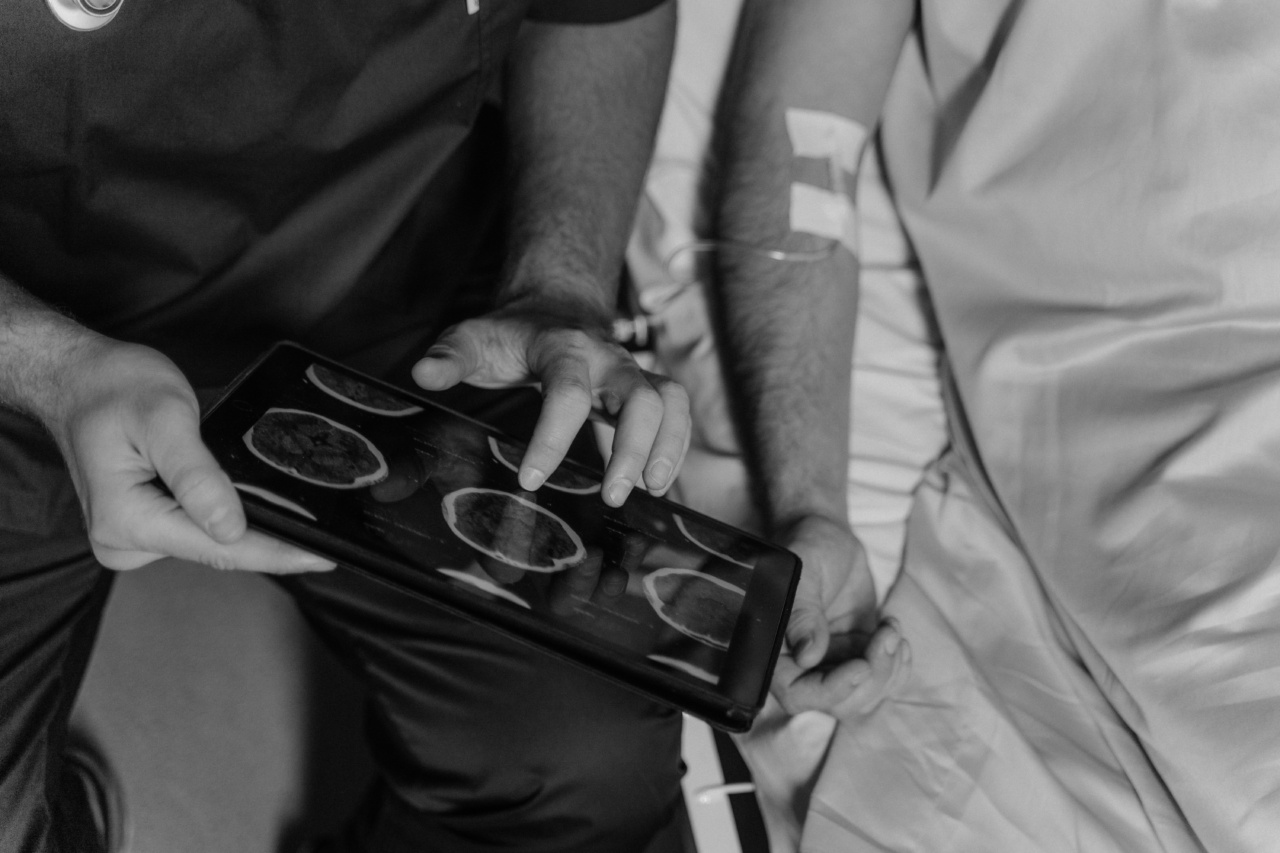Prostate cancer is a serious health concern that affects a significant number of men worldwide.
It is essential for every man to be aware of the symptoms associated with this condition, as early detection and timely intervention can play a crucial role in increasing the chances of successful treatment. In this article, we will discuss the most common prostate cancer symptoms that every man should know about.
1. Frequent Urination
One of the primary symptoms of prostate cancer is an increased need to urinate frequently, especially during the night.
This symptom, known as nocturia, is often confused with a normal aging process or other benign conditions such as urinary tract infections or an enlarged prostate. However, if you experience persistent or worsening nocturia, it is advisable to consult your healthcare provider for a proper evaluation.
2. Difficulty Initiating Urination
Prostate cancer can also cause difficulty in starting or maintaining a steady urine flow. This symptom, called dysuria, may be accompanied by a weak urinary stream or a feeling of incomplete bladder emptying.
If you find it challenging to urinate or notice any changes in your urine flow pattern, it is important to get evaluated by a medical professional.
3. Blood in Urine or Semen
Blood in urine or semen, known as hematuria and hemospermia respectively, can be indicative of various health conditions, including prostate cancer.
Although these symptoms can also occur due to less serious issues, such as urinary tract infections or prostate infections, their persistent presence should never be ignored. Consulting a healthcare provider is essential to determine the underlying cause and rule out or diagnose prostate cancer.
4. Erectile Dysfunction
Erectile dysfunction, the inability to achieve or maintain an erection sufficient for sexual intercourse, can sometimes be related to prostate cancer.
While erectile dysfunction is commonly associated with other factors like age, stress, or underlying medical conditions like diabetes or cardiovascular diseases, it is crucial to discuss any persistent difficulties with a healthcare professional, as it could be a potential sign of prostate cancer or other underlying issues.
5. Pain and Discomfort
In advanced stages of prostate cancer, pain and discomfort may become prominent. This may include aches or stiffness in the lower back, hips, or upper thighs. Some men may also experience pain during ejaculation or while urinating.
These symptoms should never be overlooked, and individuals experiencing such pain should seek medical attention promptly.
6. Unexplained Weight Loss
Sudden and unexplained weight loss without any apparent reason is a red flag that should not be ignored.
While weight loss can occur due to various factors, it is important to take it seriously, especially when associated with other potential symptoms of prostate cancer. Unintentional weight loss should prompt a visit to a healthcare professional for further evaluation.
7. Fatigue and Weakness
Fatigue and weakness are common symptoms experienced by individuals with different medical conditions, including prostate cancer.
If you find yourself feeling excessively tired or weak, without any obvious cause or improvement after adequate rest, it is advisable to consult a healthcare provider to identify potential underlying causes, including prostate cancer.
8. Bone Pain
Prostate cancer can metastasize, or spread, to the bones, leading to bone pain. This pain is typically localized and can be severe.
If you experience persistent bone pain, especially in the spine, hips, or pelvis, it is crucial to seek medical attention promptly to rule out any possible metastatic prostate cancer.
9. Bowel Symptoms
In some cases, prostate cancer can cause changes in bowel habits. This may include persistent constipation, diarrhea, or a change in stool caliber.
While these bowel symptoms can result from various factors, such as dietary changes or gastrointestinal disorders, they should not be ignored, and medical advice should be sought as needed.
10. Swelling or Lumps in the Prostate Area
In rare cases, advanced prostate cancer can lead to noticeable swelling or lumps in the prostate area. These abnormalities can sometimes be detected during a digital rectal exam conducted by a healthcare professional.
Regular check-ups and prostate screenings are essential to ensure the timely detection of any potential abnormalities or cancerous changes.
While the presence of these symptoms does not necessarily indicate the presence of prostate cancer, it is crucial to be aware of them and seek medical advice if any of these persist, worsen, or cause concern.
Early detection is key in the successful treatment of prostate cancer, and routine check-ups should never be neglected. Remember, regular communication with your healthcare provider is vital to maintain optimal prostate health and overall wellbeing.




























